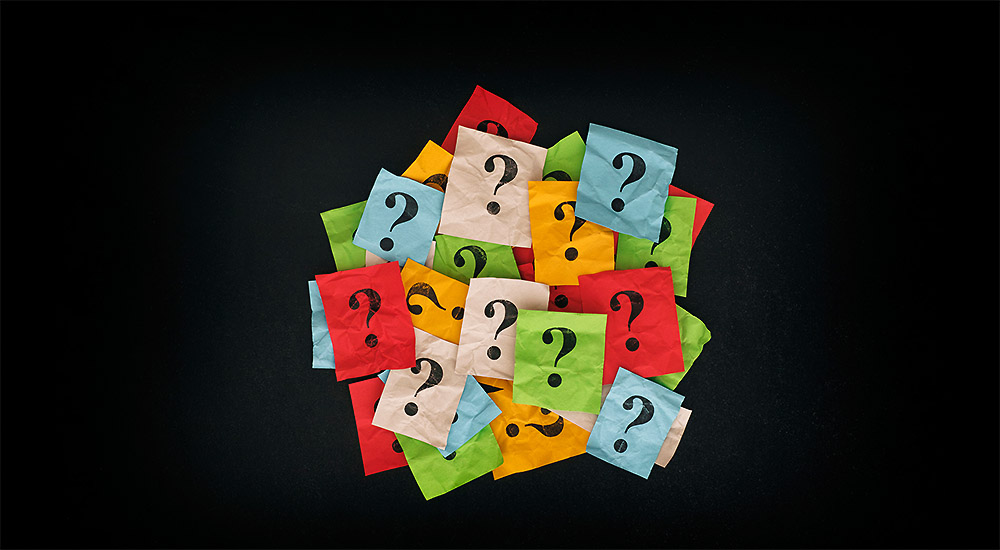Getting Glutened

Hidden Gluten
Maintaining a gluten-free diet isn’t easy. If you’ve been “glutened” you know how miserable it can make you feel but this can be avoided by following the tips below!
Let’s begin with hidden gluten. Labeling laws have certainly helped and any issues surrounding unlabeled gluten are pretty much a thing of the past. Where we can run into trouble is primarily in three areas, two of which are completely controllable:
1. You neglect to read the ingredient label carefully. Some foods seem so “clearly” gluten free that reading the label seems unnecessary but you will be surprised at the types of prepackaged and prepared foods that contain gluten.
2. You are eating in a restaurant or visiting a friend’s home and ingredient labels aren’t readily available. You don’t want to call attention to yourself, so you just try to “guess” what is gluten-free.
3. A product labeled as gluten-free turns out to be contaminated due to a manufacturing problem. Nothing you can do about this one, although I do have some thoughts about it that I will discuss below.
The bottom line is you must study food a bit. When we are discussing gluten exposure in those with celiac or NCGS (non-celiac gluten sensitivity), the truth is that even small amounts of gluten pose a serious danger to your health and longevity. In the same way, you would study seriously for an exam that allowed you to move forward in your career, you must take just as seriously the study of food such that you understand where gluten may potentially hide. Your health depends on you being a good student.
Let me give you a couple of examples from patients. A professional photographer had done outstandingly under care reversing chronic bronchitis and longstanding autoimmune disease. He made every effort to avoid gluten. Suddenly his symptoms worsened again. Dissecting his diet I discovered that he “loved” ethnic Asian food and had no idea soy sauce contained gluten. He was convinced that liquids couldn’t contain gluten and this mistaken conviction resulted in a return of his illness due to a daily lunch of sushi.
A few years later after another relapse, he discovered the wasabi he was mixing with the gluten-free soy sauce sometimes contained gluten. I gave him the heads up that sushi sticky rice too can contain gluten and hopefully, we have now exhausted all the potential gluten pitfalls of Japanese food.
Another busy executive who ate out often due to work liked to order a “clean” meal consisting of fish, a salad, and some vegetables. It seems innocent enough but…Those of us who cook know that fish such as sole tends to fall apart when sautéed. A common culinary practice is to “dredge” fish in a light coating of egg and flour to ensure it holds together when cooked. Remember, gluten has a “glue-like” quality to it. Chefs don’t even think about it and the fish won’t be labeled as breaded on the menu. The floury coating is so thin that if you aren’t paying attention you wouldn’t notice it. Unfortunately, your immune system does and this patient fell ill again as a result.
If you’re a meat eater, watch out for meatloaf, meatballs or processed meats such as sausage. In the grocery store the label would reveal the gluten content, but it you ordered them in a restaurant you would need to ask if the sausage contained gluten, as an example.
Salad dressings are another potential culprit, therefore always best to ask for ingredients or have them bring you olive oil and vinegar and you can dress the salad yourself.
French fries, a favorite American staple, are just fried potatoes, right? Unfortunately the potatoes are often coated with a blend of wheat flour and spices to make them more flavorful.
Safe Restaurant Dining
Learning about food preparation plus becoming a bit of a detective is needed to prevent getting “glutened” when eating outside your own kitchen. Even if you’re fortunate enough to find fries that have no gluten, you must think about how they’re cooked. Does the fryer also fry foods containing gluten? If the appetizer menu contains fried zucchini, onion rings, or other classic gluten-containing foods, you must ask if they use the same fryer for everything. If so, the oil has enough gluten floating around to contaminate the fries.
This can seem overwhelming, I understand. In the same way that a new area of study seems confusing until you understand it, food and cooking can feel the same way, at first. However, once you learn the basics, you’ll discover it’s not difficult. You need to be willing to obtain this knowledge, however. No one is going to care for your body if you don’t. Going to a restaurant and mumbling something about avoiding gluten to the waitperson is not adequate. You must stand up for yourself, ask questions, and ensure you are safe from gluten. Getting over any thoughts of embarrassment or sounding pushy is something you must do – your health is in your hands. Feeling great is worth the effort and soon it will become second nature to you.
There is a point where successful gluten avoiders attain their good health by making the decision that their body is more important than what anyone else may think of their dietary choices. In other words, they move past any considerations that asking questions or truly ensuring their meal is gluten-free is anything but the right thing for them to do.
As I learn again and again from patients, sharing your condition with others, be it friends or someone at a restaurant, typically educates that person in a way that will help them or someone they care about. Don’t be shy. You’ll help yourself and likely the person you are educating as well!
Helpful Enzymes
A “first aid” kit in the way of digestive enzymes is a good idea to have on hand if you’re eating out. First a disclaimer: please understand that taking an enzyme product designed to help the breakdown of gluten is not permission to cheat. Such enzymes are designed to lessen the blow to your immune system, gut, and other related organs due to gluten contamination. They DO NOT give you permission to eat gluten intentionally. Their purpose is to lessen the negative reaction from contaminated food, they cannot completely negate the negative effects of gluten ingestion.
You should not need these types of enzymes when you are cooking for yourself, but when eating out it would be a good idea to have them on hand. There are a variety of such products available and while I don’t want to endorse just one, a little online searching should give you all the data you require.
You’ve Been Glutened, Now What?
The effects of being glutened can be mild and uncomfortable or downright severe and debilitating. Once you have determined it’s happened, the first thing to do is to take some good quality enzymes as mentioned above. Next, drink a lot of water to keep your system hydrated to assist your body to remove toxins. If you have a good probiotic product, you may take that as well. Beyond that, there isn’t much you can do beyond figuring out HOW you got glutened! Whatever the culprit, try your very best to discover how you can prevent such a problem from recurring. It is absolutely key to regaining your health.
A Note On Manufactured Foods
General Mills’ recent recall of close to 2 million boxes of Cheerios is an example of food labeled as-free being contaminated through poor manufacturing processes. My thought on this is that such things tend to occur in companies that mostly manufacture gluten-containing products and those products are not particularly on my “most healthy” list. I understand the viewpoint of providing your child with something “all” the other kids are eating, but truthfully we need to strive to provide truly healthy food for ourselves and our family much more than we need to follow the status quo.
Make a chia pudding the night before or some buckwheat cereal with fresh fruit, or perhaps a yummy smoothie for breakfast. All these are 100X healthier than Cheerios, even when it is gluten-free. And if you want a boxed prepackaged cereal for special occasions, then consider a company that only manufactures gluten-free products. The odds of contamination are greatly reduced.
I hope this was helpful. Please feel free to contact me with questions or any assistance you need to improve your health. I’m here to help!
Do you need help with your health?
We have the diagnostic and testing tools, the clinical experience, and a different medical approach to discovering the root cause of why you have the symptoms that are bothering you. As long as you are ready to make some dietary and lifestyle changes, we can help you. We will "hold your hand" through the changes, step by step, to make each step an easy one. We are located in Clearwater, FL, at 1000 S Ft Harrison, at the corner of Ft. Harrison Ave. and Magnolia St. There is plenty of parking space directly accessible from Ft Harrison. If it is not convenient for you to come to Root Cause Medical Clinic, we offer telehealth/telemedicine consultations to residents of certain states. Call us for details.
Contact us for a Consultation – Call 727-335-0400

Dr. Vikki Petersen DC. CCN
Founder of Root Cause Medical Clinic
Certified Functional Medicine Practitioner
Dr Vikki Petersen is a public speaker, author of two books, several eBooks and creates cutting edge content for her YouTube community. Dr Vikki is committed to bringing Root Cause Medicine and its unique approach to restoring health naturally to the world.
Ask a Doctor
Have a health concern you'd like to speak with a doctor about? Or just want clarity on a subject? Ask Us!


